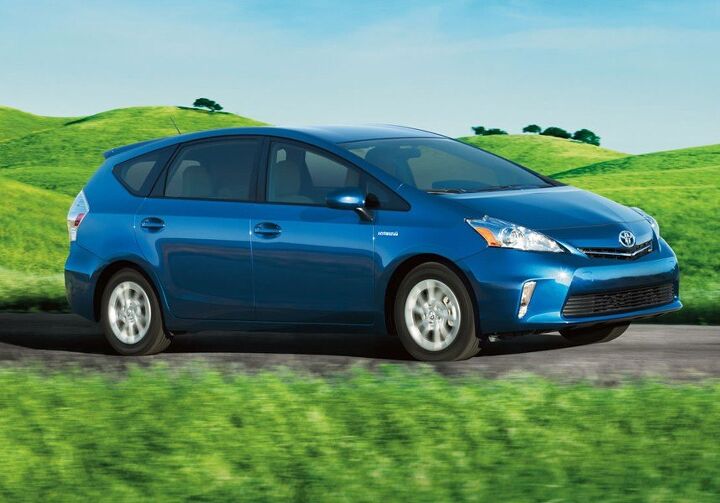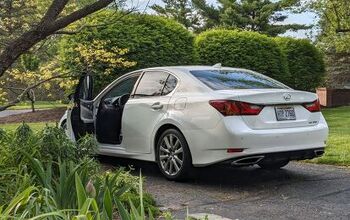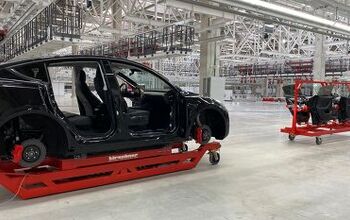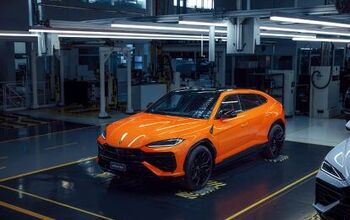Uchiyamada: Hybrids Soon Reaching 20 Percent Of Global Sales
The father of the Prius and Toyota chairman Takeshi Uchiyamada foresees hybrid sales climbing from 13 percent of global sales today to 20 percent in the near future.
Automotive News Europe reports that while hybrids make up a good part of sales in the United States and Japan, they are currently a niche market in Europe in the face of equal- or better-performing diesels with lower price tags. However, Uchiyamada believes so strongly in his forecast that he didn’t factor plug-in hybrids in to his forecast, nor give a separate outlook for plug-ins.
Speaking of plug-in hybrids, Uchiyamada believes the key to success lies in higher volumes, especially among suppliers:
Suppliers need higher volumes to slash costs of components specific to plug-in models, including batteries that should be bigger and more capable than the ones used in traditional hybrids.
Regarding the Prius, Uchiyamada said the project — known as Project G21 — was a challenge, beginning with the proposal that the future Prius would net “one and a half times better fuel economy than anything that had existed before,” only to be told by top management to double the proposed number. Then, after a successful debut at the 1995 Tokyo Auto Show, he and his team spent 49 days trying to get the proto-Prius to move, finally doing so near the end of that year, “but only for 500 meters.”
Today, with 25 hybrids between Toyota and its premium brand Lexus, as well as a global total of over 6 million hybrids sold, Uchiyamada may have aged out of the title bestowed unto him regarding the Prius:
Maybe I am the grandfather by now.
Seattle-based writer, blogger, and photographer for many a publication. Born in Louisville. Raised in Kansas. Where I lay my head is home.
More by Cameron Aubernon


































Comments
Join the conversation
I'd not only believe it, but I'd also tell him to "double his number" (to 27%, twice the improvement. I'm assuming that nobody at Toyota seriously believed you could triple a camry's gas mileage). 20% global sounds pretty easy, assuming current progress in batteries (a fairly big "if"). On the other hand, I'd assume that plenty of the current sales are those silly "hybrid for the sticker" or "hybridize it". A system like the prius (or accord hybrid) makes sense: just stuffing an electric engine in a gas car means a tiny bump in power (that could be achieved cheaper just about any other way on anything but the highest output engines) and no efficiency gains (likely some other means of efficiency is used to make it look semi "green"). There was a question about a hypothetical "1000ftlb" truck. That's what, two spark motors and a V6? Note that using a prius/volt style power adding transmission will go down to "infinite" gear, and keep pulling on a stump until the software cries uncle or the teeth are pulled from the gears. Can't say if truck buyers will fall for the "1000ftlb" claim (true, but raw torque numbers are meaningless, and even more meaningless when coming from a non-IC engine). He also seems to ignore the idea of a hybrid diesels. Presumably Honda could simply drop in their 2.2l diesel (already used in an accord) into a hybrid accord. It might only sell where gas prices are even more through the roof than Europe, but it shouldn't be too hard to design [yeah, I'm assuming that any country that does that to the price of gas wouldn't be asinine about regulations, silly me.]. Since the diesels tend to dominate mileage above 40mph, this should be the best of all [mileage] worlds [don't look at the sticker price].
With more cars utilizing start-stop and micro-hybrid systems to meet emissions and economy targets, I would be surprised if any less than 50% of cars sold will be "hybrids" of some sort in the next 20 years. However "full hybrids" will probably remain a niche.
Listing of the 10 "cheapest" hybrid cars in the EU. http://www.telegraph.co.uk/motoring/picturegalleries/9475580/The-10-cheapest-hybrid-cars.html?frame=2310219 About $44k for a Prius. Note that two have diesel engines. The EU countries subsidize diesel fuel below the price of gasoline making the more expensive to buy diesel a strong seller.
I think today's hybrid technology already makes sense for the average driver, but the payback period is longer than many want to wait. The Toyota Prius has a cost per mile below the most bare-bones economy cars, but it is much nicer over all. Let's say you compare a reasonably nice 30 mpg non-hybrid that costs $20,000 with a Toyota Prius that costs $26,000 and gives you 50 MPG. Over the first 100,000 miles, the non-hybrid uses 3,333 gallons of gas. At $3.60/gallon that's $12,000. The prius uses 2,000 gallons over the same distance, that's $7,200. That's a $4,800 difference. We're not at $6,000 yet, but at 100,000 miles, the Prius actually isn't even at middle age. The Prius likely holds a resale edge over the nonhybrid of at least $1,200, but even if it isn't sold, over the next 100,000 miles, the Prius would save another $4,800 over the non-hybrid.